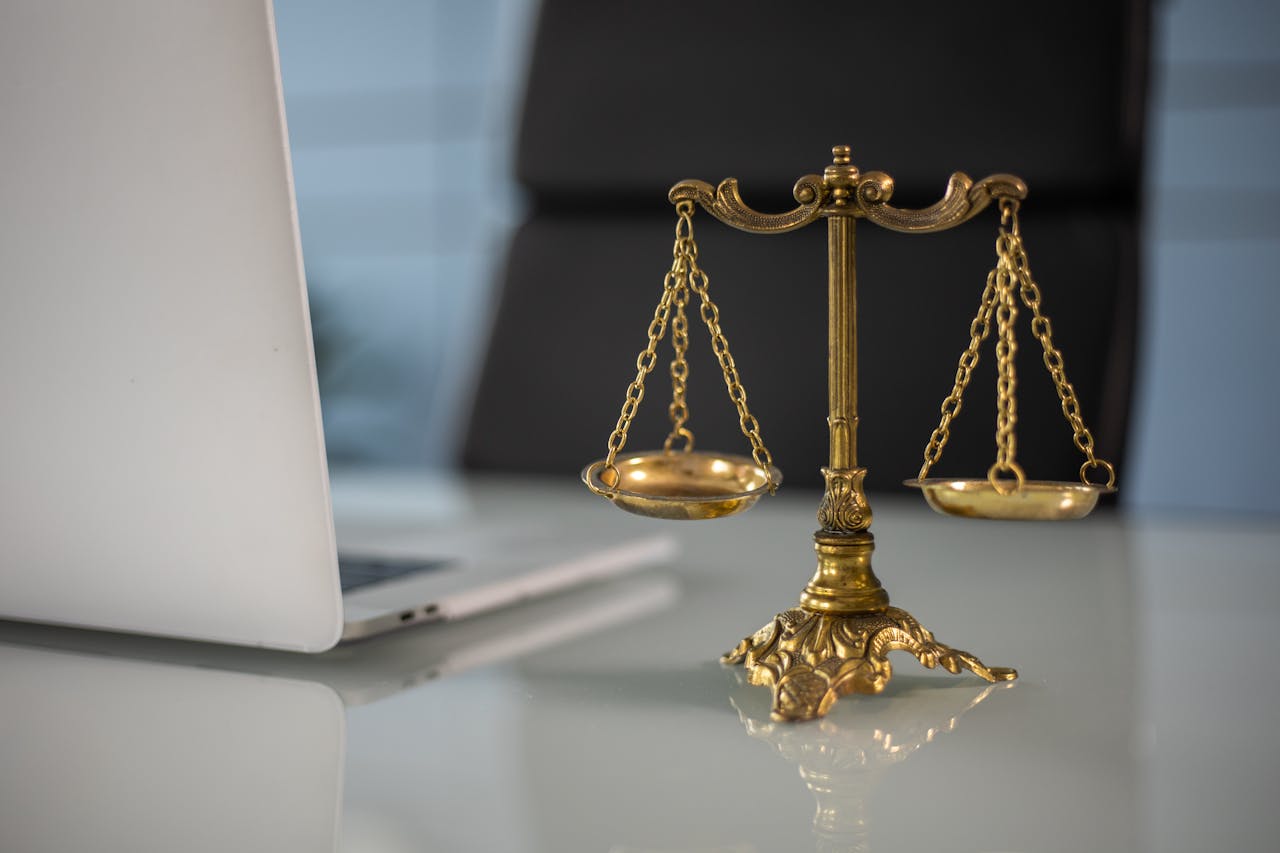Now Reading: Finding the Right Help After an Injury in Charleston
-
01
Finding the Right Help After an Injury in Charleston

Finding the Right Help After an Injury in Charleston
Experiencing an injury can be a life-altering event, bringing with it not only physical pain and emotional distress but also a complex web of legal and financial challenges. When such an unfortunate incident occurs in Charleston, South Carolina, understanding your rights and knowing where to turn for assistance is paramount. The aftermath of an injury often involves navigating medical treatments, dealing with insurance companies, and potentially pursuing a personal injury claim to recover damages. This comprehensive guide aims to illuminate the path for individuals seeking justice and appropriate compensation after an injury in the historic city of Charleston.
The Immediate Aftermath: What to Do Post-Injury
The moments immediately following an injury are critical, not just for your health and safety, but also for preserving crucial evidence that could be vital to any future legal claim. Taking the right steps can significantly impact the outcome of your case.
Prioritizing Safety and Medical Attention
Your health should always be the top priority. After an accident, ensure your immediate safety and, if necessary, the safety of others involved. Once the scene is secure, seek medical attention without delay. Even if you feel your injuries are minor, some conditions, such as concussions or internal injuries, may not manifest symptoms immediately. Prompt medical evaluation ensures that all injuries are properly diagnosed and documented. This medical record serves as a critical piece of evidence, establishing a direct link between the accident and your injuries. Delaying medical attention can not only jeopardize your health but also weaken your personal injury claim, as insurance companies may argue that your injuries were not severe or were caused by something else.
Documenting the Scene and Gathering Evidence
If your condition allows, and it is safe to do so, begin documenting the accident scene. This includes taking photographs and videos from various angles, capturing details such as vehicle damage, road conditions, traffic signs, skid marks, and any other relevant environmental factors. Collect contact information from any witnesses, including their names, phone numbers, and email addresses. If law enforcement responds to the scene, obtain a copy of the police report, as it often contains valuable information about the incident. Avoid making any statements that could be interpreted as admitting fault, even if you are unsure of the circumstances. Stick to the facts and cooperate with authorities.
Initial Interactions with Insurance Companies
Following an injury, you will likely be contacted by insurance adjusters, both from your own insurance company and potentially from the at-fault party’s insurer. It is crucial to exercise caution during these interactions. While it is important to report the accident to your own insurance company, you are not obligated to provide a recorded statement to the other party’s insurer without consulting with an attorney. Insurance adjusters are trained to minimize payouts, and anything you say can be used against you. They may try to offer a quick settlement that is far less than the true value of your claim. It is highly advisable to seek legal counsel before engaging in detailed discussions or accepting any settlement offers from insurance companies. A knowledgeable attorney can protect your rights and handle all communications with insurers on your behalf, ensuring you do not inadvertently harm your case.
Understanding Personal Injury Law in South Carolina
Personal injury law is a broad legal field designed to protect individuals who have suffered harm due to the negligence, recklessness, or intentional misconduct of another party. In South Carolina, as in other states, these laws allow injured individuals to seek financial compensation for their losses. Understanding the fundamental principles of personal injury law in the state is crucial for anyone considering a claim.
Defining Personal Injury and Common Cases in Charleston
Personal injury cases encompass a wide array of incidents where one person’s actions cause harm to another. In Charleston, due to its bustling tourism, busy roadways, and diverse industries, certain types of personal injury cases are particularly common. These often include motor vehicle accidents—such as car, truck, and motorcycle collisions—which frequently result in injuries ranging from whiplash and broken bones to traumatic brain injuries. Other prevalent cases involve slip and fall incidents, often stemming from unsafe property conditions, and workers’ compensation claims for injuries sustained on the job. Medical malpractice, dog bites, and wrongful death claims also fall under the umbrella of personal injury law. The core principle in most personal injury cases is negligence, meaning the at-fault party failed to exercise reasonable care, leading to the injury.
The South Carolina Statute of Limitations
One of the most critical legal considerations in any personal injury case in South Carolina is the statute of limitations. This is a strict deadline within which a lawsuit must be filed. For most personal injury claims in South Carolina, the statute of limitations is generally three years from the date the injury occurred [1]. This means that if a lawsuit is not filed within this three-year window, the injured party typically loses their right to pursue compensation through the court system, regardless of the merits of their case. While there are some rare exceptions that can extend or shorten this period, it is imperative to consult with an attorney as soon as possible after an injury to ensure that your claim is filed within the legally mandated timeframe. Prompt action allows your legal team ample time to investigate, gather evidence, and prepare your case thoroughly.
Modified Comparative Negligence: How Fault Affects Your Claim
South Carolina operates under a legal doctrine known as “modified comparative negligence” with a 51% bar rule. This rule dictates how damages are awarded when both parties involved in an accident share some degree of fault. Under this system, an injured party can still recover damages even if they are partially at fault for the accident, as long as their share of fault is not greater than the fault of the person they are suing. Specifically, if your fault is determined to be 50% or less, you can still recover damages, but the amount of compensation you receive will be reduced proportionally to your percentage of fault. For example, if you are awarded $100,000 in damages but are found to be 20% at fault, your compensation will be reduced by 20%, resulting in a $80,000 award. However, if your fault is determined to be 51% or more, you are barred from recovering any damages. This rule underscores the importance of a thorough investigation into the accident’s circumstances to accurately assess fault and maximize potential recovery. For a deeper understanding of personal injury law, including negligence and other legal concepts, you can refer to resources like the Legal Information Institute at Cornell Law School.
The Personal Injury Claim Process: A Step-by-Step Guide
The journey through a personal injury claim can be intricate and lengthy, often involving multiple stages from the initial incident to a final resolution. While every case is unique, there is a general process that most personal injury claims follow in South Carolina.
From Investigation to Negotiation
After seeking immediate medical attention and documenting the scene, the next crucial step is typically to consult with a personal injury attorney. Your attorney will conduct a thorough investigation into your case, gathering all necessary evidence. This includes obtaining police reports, medical records, witness statements, and any other documentation that supports your claim. They will also assess the full extent of your damages, both economic and non-economic. Once a comprehensive understanding of your case is established, your attorney will typically send a demand letter to the at-fault party’s insurance company, outlining the facts of the case, the injuries sustained, and the compensation sought. This often initiates a period of negotiation, where your attorney will engage in discussions with the insurance adjuster to reach a fair settlement. These negotiations can be complex, as insurance companies often employ tactics to minimize their payout. Having an experienced attorney by your side ensures that your rights are protected and that you are not pressured into accepting an inadequate offer.
The Role of Medical Records and Documentation
Medical records are the backbone of any personal injury claim. They provide objective evidence of your injuries, the treatment you have received, and the prognosis for your recovery. Detailed medical documentation helps to establish a direct causal link between the accident and your injuries, which is essential for proving your case. It also quantifies the extent of your medical expenses, a significant component of economic damages. Beyond medical bills, records of physical therapy, rehabilitation, and any ongoing medical needs are crucial. Your attorney will work closely with your healthcare providers to ensure all relevant medical information is collected and properly presented. Maintaining consistent medical care and following your doctor’s recommendations are vital, as gaps in treatment or non-compliance can be used by the defense to argue that your injuries are not as severe as claimed or are unrelated to the accident.
Settlement vs. Trial: Weighing Your Options
Most personal injury cases in South Carolina, and across the nation, are resolved through settlement rather than going to trial. A settlement is an agreement between the injured party and the at-fault party (or their insurance company) to resolve the claim outside of court. This can occur at various stages of the process, from pre-litigation negotiations to mediation or even during a trial. Settlements offer several advantages, including a quicker resolution, reduced legal costs, and a guaranteed outcome. However, if a fair settlement cannot be reached through negotiation, your attorney may advise filing a lawsuit and proceeding to trial. While a trial offers the potential for a larger award if successful, it also carries risks, including the uncertainty of a jury verdict and the significant time and expense involved. Your attorney will provide guidance on the best course of action for your specific case, weighing the pros and cons of settlement versus trial based on the strength of your evidence, the severity of your injuries, and the defendant’s willingness to negotiate fairly.
Types of Damages You Can Recover
When pursuing a personal injury claim in Charleston, understanding the different types of damages you may be entitled to recover is essential. These damages are designed to compensate you for the losses you have suffered as a result of the injury, aiming to put you back in the position you would have been in had the accident not occurred.
Economic Damages: Covering Tangible Losses
Economic damages, also known as special damages, are quantifiable financial losses that can be objectively calculated and proven with documentation. These are often the most straightforward to determine and include a range of expenses directly resulting from your injury. Common examples of economic damages include: medical expenses, both past and future, encompassing hospital stays, doctor visits, surgeries, medications, physical therapy, and rehabilitation; lost wages, covering any income you have lost due to being unable to work, as well as future earning capacity if your injuries prevent you from returning to your previous employment or limit your ability to earn; and property damage, which includes the cost of repairing or replacing damaged property, such as your vehicle in a car accident. Keeping meticulous records of all expenses and financial losses is crucial for maximizing your economic damage recovery.
Non-Economic Damages: Addressing Intangible Harm
Non-economic damages, often referred to as general damages, are more subjective and compensate for intangible losses that do not have a direct monetary value. These damages are intended to cover the non-financial impact of your injury on your life. Examples include: pain and suffering, which accounts for the physical pain and emotional distress you have endured and will continue to endure; mental anguish, covering psychological impacts such as anxiety, depression, and post-traumatic stress disorder; loss of enjoyment of life, compensating for the inability to participate in activities and hobbies you once enjoyed; and disfigurement or scarring, acknowledging the physical changes and their emotional toll. While these damages are harder to quantify, an experienced personal injury attorney can effectively argue for their value based on the severity of your injuries, their long-term impact on your life, and legal precedents. It is important to note that in South Carolina, there may be caps on non-economic damages in certain types of cases, such as medical malpractice, but generally not for most personal injury claims.
Punitive Damages: When Recklessness Calls for Punishment
Punitive damages are distinct from economic and non-economic damages. They are not intended to compensate the injured party for their losses but rather to punish the at-fault party for particularly egregious, reckless, or malicious conduct and to deter similar behavior in the future. Punitive damages are awarded in a small percentage of personal injury cases and are typically reserved for situations where the defendant’s actions demonstrate a conscious disregard for the safety of others. For instance, a drunk driver causing a severe accident might be subject to punitive damages. In South Carolina, there are strict legal standards and limitations governing the award of punitive damages, and they are often capped at a certain multiple of compensatory damages or a specific dollar amount, whichever is greater. Your attorney will advise you if your case meets the criteria for seeking punitive damages.
Choosing the Right Personal Injury Attorney in Charleston
After an injury, selecting the right legal representation is perhaps the most crucial decision you will make. A skilled and compassionate attorney can significantly influence the outcome of your case, ensuring you receive the compensation you deserve. Charleston, with its vibrant legal community, offers numerous options, but finding the perfect fit requires careful consideration.
Why Local Expertise Matters
While personal injury law has overarching principles, local nuances can play a significant role in a case’s success. A Charleston-based personal injury attorney possesses invaluable local expertise. They are familiar with the specific courts, judges, and opposing counsel in the area, which can be a considerable advantage during negotiations and litigation. They understand local traffic patterns, common accident hotspots, and even the reputations of local medical providers. This localized knowledge allows them to build stronger cases, anticipate challenges, and navigate the legal landscape more effectively. Furthermore, a local attorney is more accessible for in-person meetings, fostering a stronger client-attorney relationship built on trust and direct communication. For comprehensive personal injury legal services in Charleston, it is advisable to seek out firms with a strong local presence and a proven track record of success in the community.
Key Questions to Ask Prospective Lawyers
When interviewing potential personal injury attorneys, come prepared with a list of questions to help you make an informed decision. These questions should delve into their experience, approach, and fee structure. Consider asking:
* **What is your experience with cases similar to mine?** Look for an attorney who has a demonstrated history of handling cases involving the specific type of injury or accident you experienced.
* **What is your success rate in personal injury claims?** While past results don’t guarantee future outcomes, a strong track record indicates competence and effectiveness.
* **How will you communicate with me throughout the process?** Clear and consistent communication is vital. Understand how often you can expect updates and through what channels.
* **Who will be directly handling my case?** In some firms, a senior attorney may oversee the case, but associates or paralegals handle much of the day-to-day work. Clarify who your primary contact will be.
* **What are your fees, and how are they structured?** Most personal injury attorneys work on a contingency fee basis, meaning they only get paid if you win your case. Ensure you understand all potential costs, including court fees and expert witness charges.
* **What is your assessment of my case’s strengths and weaknesses?** A good attorney will provide an honest and realistic evaluation of your case, including potential challenges.
* **How long do you anticipate my case will take?** While precise timelines are impossible, an experienced attorney can provide a general idea of the duration based on similar cases.
The Importance of Experience and Reputation
Beyond specific questions, consider an attorney’s overall experience and professional reputation. An attorney with years of dedicated experience in personal injury law will have a deeper understanding of legal precedents, negotiation strategies, and courtroom procedures. Their experience translates into a more efficient and effective handling of your case. A strong professional reputation, often reflected in peer reviews, awards, and client testimonials, speaks volumes about their ethical conduct, legal prowess, and commitment to their clients. Resources like Super Lawyers can provide insights into an attorney’s standing within the legal community, showcasing their recognition for excellence. Ultimately, choosing an attorney who is not only knowledgeable but also empathetic and dedicated to your well-being can make a significant difference in your journey toward recovery and justice.
Navigating the Legal Journey with Confidence
The period following an injury can be overwhelming, filled with physical recovery, emotional stress, and financial strain. However, with the right legal team by your side, you can navigate this challenging journey with greater confidence, focusing on your healing while your attorney handles the complexities of your personal injury claim.
Building a Strong Case: What to Expect from Your Attorney
Once you retain a personal injury attorney, their primary role is to build the strongest possible case on your behalf. This involves a meticulous process of evidence collection, expert consultation, and strategic planning. Your attorney will gather all relevant medical records, police reports, witness statements, and any other documentation pertinent to your case. They may also consult with accident reconstructionists, medical specialists, or financial experts to accurately assess the full extent of your damages and establish liability. Throughout this process, your attorney will handle all communications with insurance companies and opposing counsel, shielding you from their tactics and ensuring that your rights are protected. They will prepare all necessary legal documents, file them with the appropriate courts, and represent your interests in all negotiations, mediations, and, if necessary, at trial. Their expertise allows you to concentrate on your recovery, knowing that your legal matters are in capable hands.
Communication and Transparency: Your Role in the Process
While your attorney will manage the legal heavy lifting, your active participation and open communication are vital to the success of your case. Be honest and thorough when discussing the details of your accident and injuries with your legal team. Provide them with all requested documents promptly and keep them updated on your medical treatment and any changes in your condition. If you receive any communications from insurance companies or other parties, forward them immediately to your attorney without responding yourself. Ask questions whenever you have them; a good attorney will ensure you understand each step of the process and the implications of any decisions. Maintaining a journal of your pain levels, limitations, and emotional state can also be incredibly helpful, providing valuable insights into the non-economic impacts of your injury.
The Path to Recovery and Justice
Ultimately, the goal of pursuing a personal injury claim is to achieve justice and secure the financial compensation necessary for your recovery. This compensation can cover medical bills, lost income, pain and suffering, and other damages, providing you with the resources to rebuild your life. The legal process can be long and arduous, but with a dedicated Charleston personal injury attorney advocating for your rights, you increase your chances of a favorable outcome. By understanding the process, knowing what to expect, and actively collaborating with your legal team, you can navigate the complexities of a personal injury claim with confidence, paving the way for both physical and financial recovery. Remember, seeking professional legal guidance is not just about winning a case; it’s about ensuring your well-being and securing your future after an unexpected injury.
About the author: Mark Scott
With a law degree under his belt, Mark Scott understood very early that law communication was a relatively neglected area. He decided to help people by “translating” the language and offering information and advice in a clear, useful, and actionable manner. For this reason, instead of finding him in court, you will most likely find his name online, where he is very active and thriving as a legal columnist. His part of making the world a better place is to make the law a less convoluted maze. He aims to make it easier for people to understand when and how to seek legal counsel, how to proceed in a significant number of legal matters, and to find the proper resources so they can stand up for their rights.











